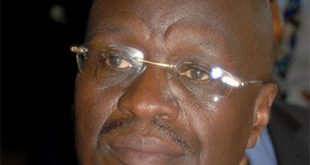
“Not everyone who retires has difficulties with the transition, but those that have not planned are at a greater risk of mental and physical health problems”
COMMENT | Lydia Mirembe | “It would be quite disheartening for an employer to find their retired employee living in despicable conditions. Every employer should be proud to see their employees make progress on all fronts and retire happily at the end of their years in service.”
That was a message from Mr. Martin Nsubuga, the CEO of Uganda Retirement Benefits Regulatory Authority (URBRA). He was addressing members of the Federation of Uganda Employers (FUE) and the Human Resource Managers Association of Uganda (HRMAU). The meeting on 29th November, was convened by URBRA in partnership with Prudential, to discuss ways of getting more employers and employees embrace voluntary retirement saving.
Mr. Nsubuga observed that although URBRA had consistently rallied the public to save for retirement, of Uganda’s estimated 15-million workforce, only 18% subscribed to an existing retirement saving arrangement.
“This means that over 12 million are either saving for retirement in an unstructured way, or are not saving at all. Many who are not covered by existing retirement benefits arrangements are working in the informal sector. However, there are many workers in seemingly formal arrangements, whose employers are simply not providing any retirement benefits,” Mr. Nsubuga said.
He further said that while providing retirement benefits is seen as an added cost to business, it is the least that employers can do for their employees. “In addition to providing retirement benefits, employers should take keen interest in the financial wellbeing of their employees and promote good practices like saving and financial literacy,” he advised, appealing to all employers to set up retirement schemes for their employees.
Speakers who addressed the meeting shared the conviction that employers and employees should take voluntary retirement saving more seriously.
Mr. Ronald Bbosa, President of HRMAU noted that retirement benefits are now a key driver for staff recruitment. “Prospective employees always look out for employers that offer the best benefits package, because that helps the employee kickstart their journey into self-employment,” he said.
Mr Bbosa also advised that employees could make voluntary retirement saving more attractive by allowing employees to allocate some of their accrued benefits for health insurance. “Instead of waiting until the age of 55 to access a lumpsum, sector players should think about allowing savers to access some of their savings to contribute to annual medical insurance cover,” he said.
Further emphasizing the importance of occupational retirement saving schemes, Ms. Daisy Nabakooza, URBRA’s Director Supervision and Market Conduct explained that such schemes are important for recruitment and retention of skilled manpower.
“Employers with pension arrangements are viewed with more goodwill than those without. From the employee perspective, voluntary saving is a valuable retirement planning tool, instills financial discipline, and provides a pension or lumpsum payout upon retirement. It also provides survivor benefits, ill-health and incapacity benefits to dependents when such circumstances arise,” Nabakooza explained.
Ms. Grace Nabookoza, FUE’s Head Employment Services and Legal, noted that many people feel constrained to save for retirement because they think they earn too little. “While we know every employer is able to pay based on what they can afford, the current legal framework does not accommodate or is not up to speed with the minimum wage issues,” she said, expressing the need for HRMAU and FUE members to discuss the matter of minimum wage with the powers that be.
Still on the employees’ saving habits, Uthman Mayanja, PWC Country Partner noted that there is a general misconception that one must save after spending. The golden rule is to spend after saving.
“It is important to save every time you earn money. You should also invest your savings wisely. Some investments may do well and others may not, so one should not put all their eggs in one basket,” Mayanja advised.
The establishment of voluntary saving schemes is just a beginning; managing and sustaining the schemes also needs great attention. After setting up a scheme it is important to sustain it through good governance, wise investment, management of costs and risks, and observance of member rights and obligations.
Sharing experiences on how to successfully manage and sustain a retirement benefits scheme, Professor Godwin Kakuba, Chairperson Board of Trustees of Makerere University Retirement Benefits Scheme (MURBS) and Mr Bruno Muhindi, a trustee with KCB gave the following tips:
Irrevocable trust: A scheme should be established by an irrevocable trust, which means that it cannot be undone under any circumstances. This gives security to members.
Registration of the scheme: If as scheme is registered as a body corporate, as in the case of MURBS, it can operate independently without the sponsors’ involvement. in the day-to-day operations of the scheme. All this is to protect the rights of members who have entrusted their funds with the scheme.
Governance: The scheme should have a Board Charter which stipulates the roles of all members of the Board of Trustees. The scheme should also have other policies that guide its operations, including a code of conduct, strategic plan, investment policy schedule and risk policy. The Trust Deed and clear policies help resolve disagreements, while protecting the members interests.
Role of trustees: The success of schemes depends majorly on the trustees so it is important to choose the right people for the job. “Do not look at your friends or people easily accessible to you as your choice of trustees, you need competent individuals,” Muhindi advised. One of the key responsibilities of the trustees is to ensure compliance with regulations, otherwise the scheme attracts sanctions from the regulator.
Roles of the sponsor: The sponsor (employer) must take the responsibility to maintain updated records of their employees. Mr Muhindi cited the challenge of poor record keeping and tracking of employees. Some employees leave their jobs and no one can trace them, leaving unclaimed funds in the scheme. Employers and HR managers should also implement training programmes to enhance staff financial literacy. This will enable members to have keener interest in the management of their funds. Employers should make timely remittance of contributions and in case they have challenges, consult both the regulator and the trustees for guidance. Transparency is key in scheme administration.
On the whole, URBRA and the members of FUE and HRMAU were in agreement that voluntary retirement saving is the ideal. Employers should encourage employees to adopt the saving culture, to enhance their chances of transitioning to a happy retirement when they leave work.
Ms. Daisy Nabakooza put it aptly when she said: “Not everyone who retires has difficulties with the transition, but those that have not planned are at a greater risk of mental and physical health problems. Awareness of this fact and taking appropriate steps ahead of time allows for a smoother transition, lessens the negative effects of the change and enhances your ability to enjoy this new period of your life that could contain endless possibilities.”
*****
 Lydia Mirembe is the Manager, Corporate and Public Affairs, Uganda Retirement Benefits Regulatory Authority (URBRA)
Lydia Mirembe is the Manager, Corporate and Public Affairs, Uganda Retirement Benefits Regulatory Authority (URBRA)
 The Independent Uganda: You get the Truth we Pay the Price
The Independent Uganda: You get the Truth we Pay the Price



